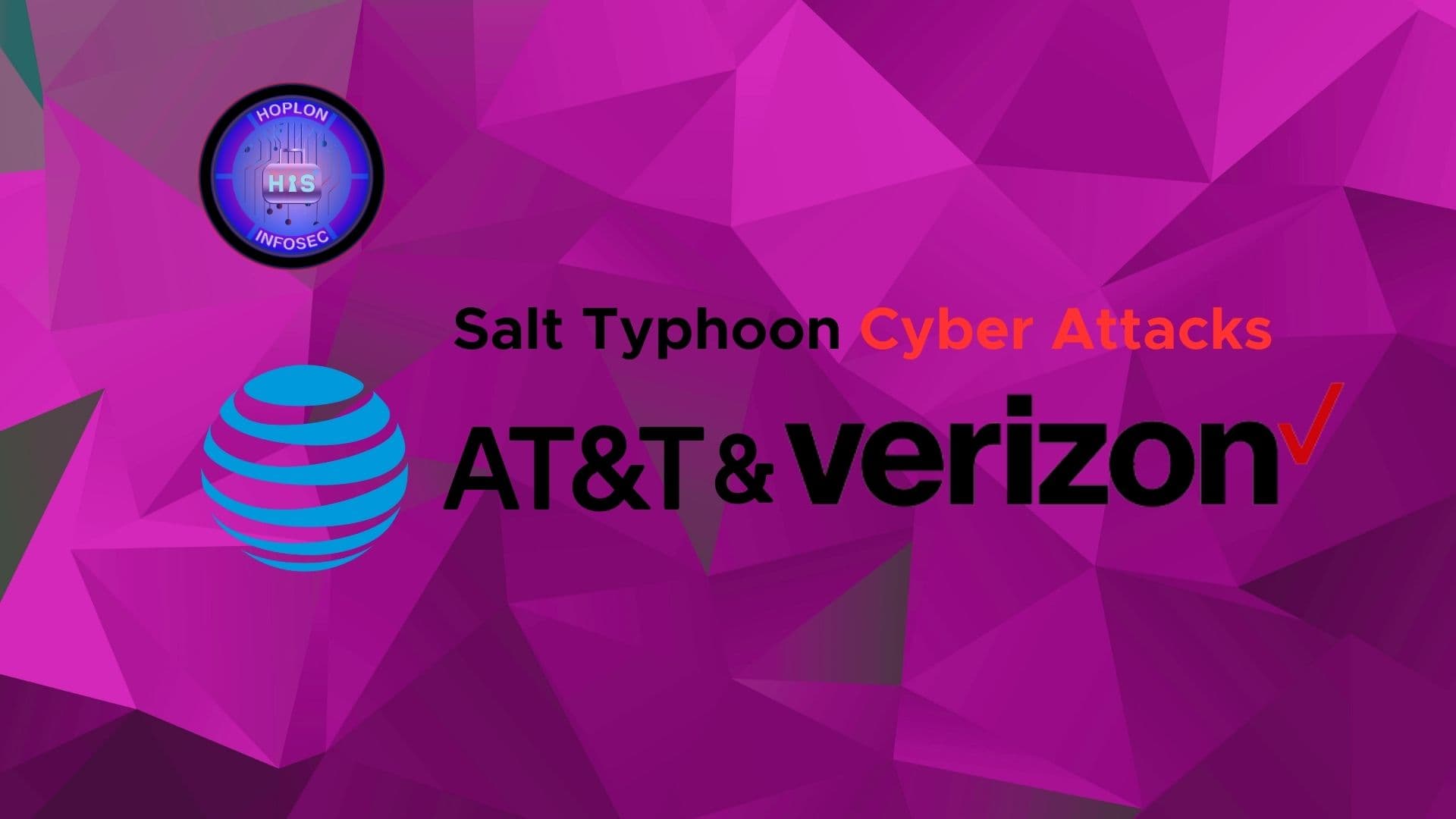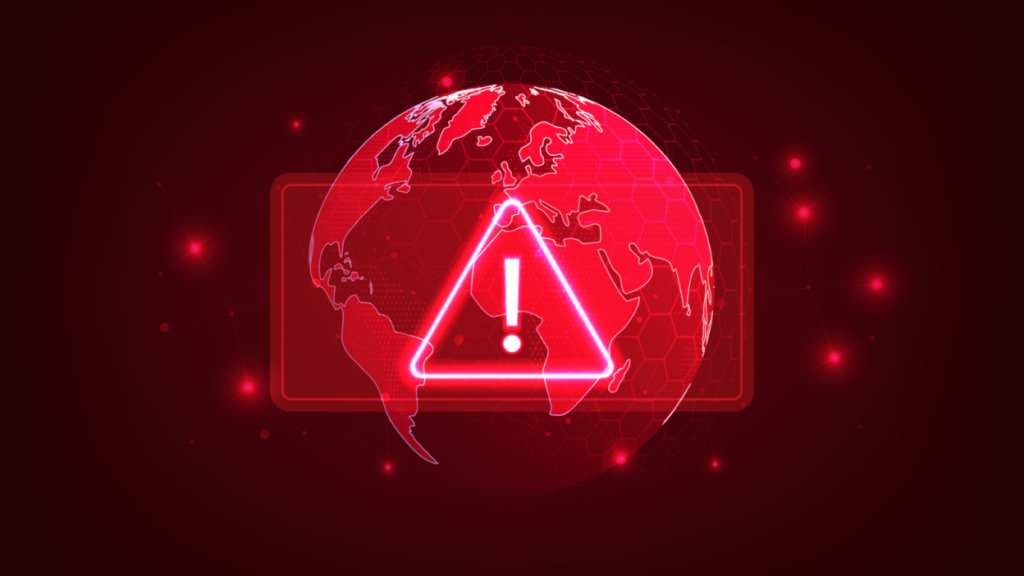AT&T, Verizon Hit by China-Linked Salt Typhoon Cyber Attack

Hoplon InfoSec
29 Dec, 2024
In recent developments, major U.S. telecommunications companies AT&T Inc. and Verizon Communications Inc. confirmed being targeted by a sophisticated hacking group known as Salt Typhoon Cyber Attack. This group, believed to be linked to China, aimed to exploit vulnerabilities in the networks of these telecom giants. While both companies assured the public that their systems are now secure, this incident has raised serious concerns about the resilience of critical U.S. communications infrastructure.
Details of the Breach
The breach came to light following a report by The Wall Street Journal in October, which revealed that multiple telecom carriers, including AT&T and Verizon, had been compromised. According to AT&T, the hackers attempted to access information related to foreign intelligence operations. Verizon disclosed that the attackers specifically targeted a small group of high-profile customers in government and politics.
“We detect no activity by nation-state actors in our networks at this time,” an AT&T spokesperson stated, emphasizing that the company has worked closely with law enforcement to notify affected parties and secure its systems. Similarly, Vandana Venkatesh, Verizon’s Chief Legal Officer, confirmed that Verizon has contained the activities associated with this breach. An independent cybersecurity firm has since validated this containment.
While the companies have moved swiftly to address the issue, the breach highlights the persistent threat of cyber-espionage operations targeting essential communication networks.
The Scope and Impact of Salt Typhoon Cyber Attack

Salt Typhoon, identified by Microsoft threat researchers, is a highly sophisticated cyber-espionage operation. Its tactics reportedly include infiltrating systems that handle sensitive data, such as those used for court-authorized wiretap requests. U.S. officials say the intrusion impacted nine telecom companies, although the complete list of affected carriers remains undisclosed.
T-Mobile USA Inc. also reported suspicious activity consistent with Salt Typhoon’s methods. However, the company claimed it successfully expelled the attackers before customer data could be compromised.
The Biden administration has acknowledged the gravity of the situation. In a closed-door meeting with telecom industry leaders, including AT&T CEO John Stankey, officials discussed vulnerabilities within the sector and the measures needed to mitigate such risks. Despite these efforts, the full scope of the attack remains uncertain, and experts warn that eliminating the threat could take significant time and resources.
China’s Denial and Security Analysts’ Findings
The Chinese government has consistently denied any involvement in the Salt Typhoon attacks. However, security analysts have attributed the breach to China-linked actors based on the techniques and tools used during the operation. This attribution aligns with a broader pattern of state-sponsored cyber activities aimed at gathering intelligence from critical infrastructure in other nations.
Lessons for the Telecom Industry

The Salt Typhoon breach underscores several critical lessons for the telecommunications sector and its stakeholders:
The Importance of Proactive Cybersecurity Measures
Telecom networks are integral to national security and everyday communication. As such, they are prime targets for state-sponsored cyberattacks. Companies must adopt proactive measures, including advanced threat detection systems, regular vulnerability assessments, and robust incident response protocols.
Collaboration Between the Public and Private Sectors
The breach highlights the need for heightened collaboration between government agencies and private companies. Effective information sharing can help identify and mitigate threats more efficiently. Initiatives like the recent meeting convened by the Biden administration are steps in the right direction but must be part of a sustained effort.
The Role of Independent Audits and Assessments
AT&T and Verizon’s response involved independent cybersecurity firms validating the containment of the breach. Such third-party assessments provide an unbiased evaluation of a company’s security posture and can help regain public trust after an incident.
Addressing Insider Threats
While external attackers are a significant concern, insider threats—whether malicious or unintentional—can exacerbate vulnerabilities. Companies should implement stringent access controls and monitor network activities to detect and prevent insider-related breaches.
The Broader Implications for National Security
Telecom networks form the backbone of critical infrastructure in the United States, supporting everything from emergency services to financial transactions. A successful attack on these systems could have far-reaching consequences, including compromised national security, economic disruptions, and erosion of public trust.
The Salt Typhoon incident is a stark reminder of the evolving nature of cyber threats. As adversaries become more sophisticated, so must the defenses protecting critical infrastructure. This requires technological advancements and a cultural shift within organizations to prioritize cybersecurity at every level.
Conclusion
The Salt Typhoon cyberattack is a wake-up call for the U.S. telecommunications industry and its regulators. While AT&T and Verizon have managed to contain the breach and secure their networks, the incident underscores the urgent need for comprehensive cybersecurity strategies. Proactive measures, public-private collaboration, and ongoing vigilance are essential to safeguarding the nation’s critical communications infrastructure against future threats.
For more:
https://cybersecuritynews.com/salt-typhoon-hackers-launched-cyber-attack-on-att-and-verizon/
Share this :